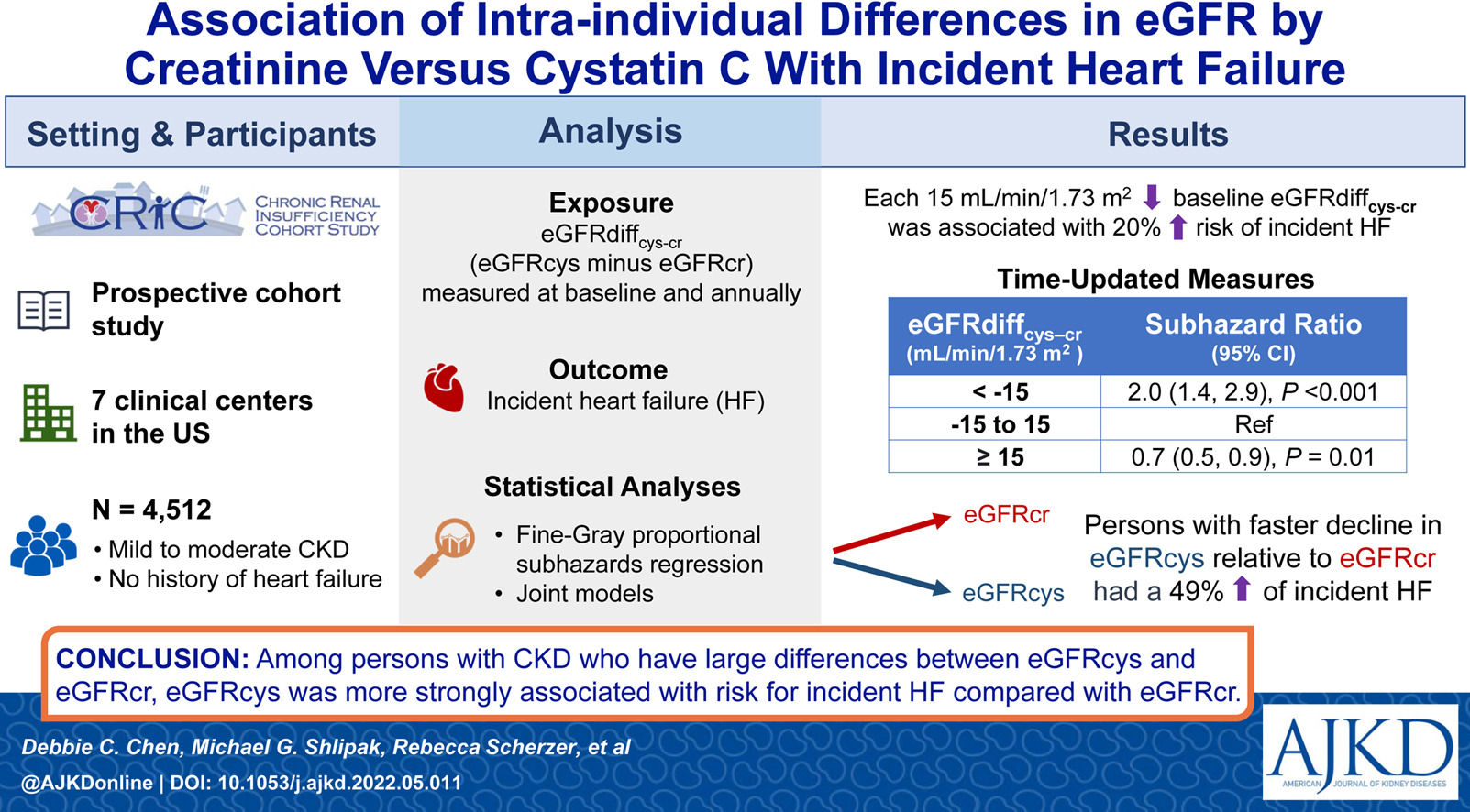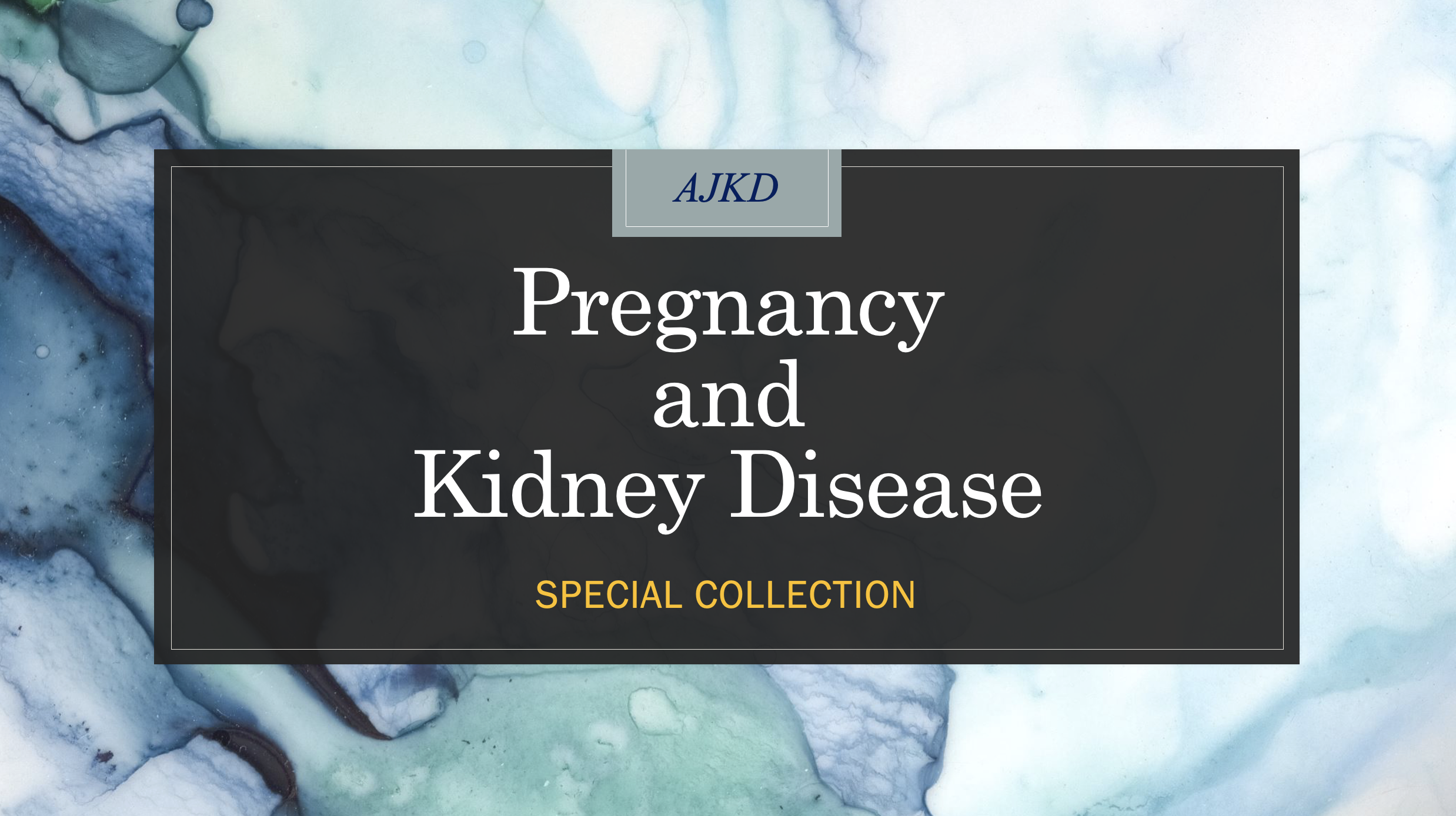Highlights from the December 2022 Issue
Editor’s Note: We asked authors of Original Investigations to provide short plain-language summaries that would briefly summarize what inspired their study, the basic approach taken, what was learned, and why it matters. We hope our readers will find this valuable in helping them keep up with the latest research in the field of nephrology. From the December 2022 issue:
Association of Predicted HLA T-Cell Epitope Targets and T-Cell–Mediated Rejection After Kidney Transplantation by Aleksandar Senev et al
From the authors: Genetic differences in the human leukocyte antigen (HLA) complex between kidney transplant donors and recipients play a central role in T-cell–mediated rejection (TCMR), which can lead to failure of the transplanted kidney. Evaluating this genetic disparity (mismatch) in the HLA complex at the molecular (epitope) level could contribute to better prediction of the immune response to the donor organ posttransplantation. We investigated the associations of the different donor HLA–derived T-cell epitope targets and scores obtained from virtual crossmatch algorithms with the occurrence of TCMR, borderline TCMR, and graft failure after kidney transplantation after taking into account the influence of donor-specific anti-HLA antibodies. This study illustrates the greater importance of the molecular mismatches in class II molecules compared to class I HLA molecules.
DOI: 10.1053/j.ajkd.2022.04.009
Editorial: Molecular Mismatch and the Risk for T Cell–Mediated Rejection by Chris Wiebe, Peter W. Nickerson, and Vasilis Kosmoliaptsis [FREE]
Referral and Evaluation for Kidney Transplantation Following Implementation of the 2014 National Kidney Allocation System by Rachel E. Patzer et al
DOI: 10.1053/j.ajkd.2022.01.423
Editorial: Advancing Transplant Equity by Closing the Gaps in Policy, Practice, and Research by Tanjala S. Purnell [FREE]
The Risk of Cardiovascular Events in Individuals With Primary Glomerular Diseases by Mark Canney and Heather M. Gunning et al
From the authors: Patients with chronic kidney disease are known to be at high risk of cardiovascular disease. Cardiovascular risk in patients with primary glomerular diseases is poorly understood because these conditions are rare and require a kidney biopsy for diagnosis. In this study of 1,912 Canadian patients with biopsy-proven IgA nephropathy, minimal change disease, focal segmental glomerulosclerosis, and membranous nephropathy, the rate of cardiovascular events was 2.5 times higher than in the general population and was high for each disease type. Consideration of disease type, kidney function, and proteinuria improved the prediction of cardiovascular events. In summary, our population-level study showed that patients with primary glomerular diseases have a high cardiovascular risk, and that inclusion of kidney-specific risk factors may improve risk stratification.
DOI: 10.1053/j.ajkd.2022.04.005
Self-reported Physical Activity and Cardiovascular Events in Adults With CKD: Findings From the CRIC (Chronic Renal Insufficiency Cohort) Study by Jacob W. Bruinius et al
From the authors: In this long-term study of 3,926 adults with chronic kidney disease, we found that individuals with higher levels of physical activity were less likely to experience an atherosclerotic event (for example, a heart attack, stroke, or peripheral arterial disease), new-onset heart failure, and death as compared with those with lower levels of physical activity. The findings were similar for the analyses evaluating adherence to guideline-recommended level of physical activity (that is, for more than 150 minutes per week), and they strengthen the evidence supporting the current guideline recommendations.
DOI: 10.1053/j.ajkd.2022.05.007
Association of Intra-individual Differences in Estimated GFR by Creatinine Versus Cystatin C With Incident Heart Failure by Debbie C. Chen et al
From the authors: Individuals with lower kidney function, as determined by estimated glomerular filtration rate (eGFR), have higher risk of developing heart failure. Although the biomarkers cystatin C and creatinine are both used to determine eGFR, cystatin C–based eGFR (eGFRcys) may differ substantially from creatinine-based eGFR (eGFRcr) within an individual. When these differences are large, it is unclear whether eGFRcys or eGFRcr is the more reliable indicator of heart failure risk. We analyzed the association of the difference in eGFRcys and eGFRcr with risk of incident heart failure among an ambulatory kidney disease cohort. Among participants who have large differences between eGFRcys and eGFRcr, eGFRcys was more strongly associated with risk of incident heart failure. Evaluating eGFRcys, eGFRcr, and their difference can optimize heart failure risk assessment among persons with kidney disease.
DOI:10.1053/j.ajkd.2022.05.011
Australian Rural Caregivers’ Experiences in Supporting Patients With Kidney Failure to Access Dialysis and Kidney Transplantation: A Qualitative Study by Nicole Scholes-Robertson et al
From the authors: This interview-based study elicited the challenges faced by people and family members who care for patients from rural towns who are receiving dialysis or kidney transplantation. The barriers and difficulties reported included traveling long distances, needing to move to larger towns and leaving their homes, feeling concerned for the long-term effects on their children, physical exhaustion, and financial issues. Additional efforts are needed to identify the means by which caregivers and their families in rural towns can obtain support to care for those with kidney failure.
DOI:10.1053/j.ajkd.2022.05.015
Special Report from the December 2022 issue:
Obstacles and Opportunities in Managing Coexisting Obesity and CKD: Report of a Scientific Workshop Cosponsored by the National Kidney Foundation and The Obesity Society by Allon N. Friedman et al (FREE)
The NKF and The Obesity Society (TOS) cosponsored a multispecialty international workshop in April 2021 to advance the understanding and management of obesity in adults with chronic kidney disease (CKD). The underlying rationale for the workshop was the accumulating evidence that obesity is a major contributor to CKD and adverse outcomes in individuals with CKD, and that effective treatment of obesity, including lifestyle intervention, weight loss medications, and metabolic surgery, can have beneficial effects. The attendees included a range of experts in the areas of kidney disease, obesity medicine, endocrinology, diabetes, bariatric/metabolic surgery, endoscopy, transplant surgery, and nutrition, as well as patients with obesity and CKD. The group identified strategies to increase patient and provider engagement in obesity management, outlined a collaborative action plan to engage nephrologists and obesity medicine experts in obesity management, and identified research opportunities to address gaps in knowledge about the interaction between obesity and kidney disease. The workshop’s conclusions help lay the groundwork for development of an effective, scientifically based, and multidisciplinary approach to the management of obesity in people with CKD.
DOI: 10.1053/j.ajkd.2022.06.007
 On the Cover: The cover image depicts Victoria Falls, one of the world’s largest waterfalls. Victoria Falls lies on the border between Zambia and Zimbabwe along the Zambezi River in Sub-Saharan Africa. Rainbows are often seen through its mist. In this month’s issue of AJKD, Dahwa et al present data from The Dialysis in Zimbabwe (DIAZ) project reporting on the epidemiology of dialysis in the country.
On the Cover: The cover image depicts Victoria Falls, one of the world’s largest waterfalls. Victoria Falls lies on the border between Zambia and Zimbabwe along the Zambezi River in Sub-Saharan Africa. Rainbows are often seen through its mist. In this month’s issue of AJKD, Dahwa et al present data from The Dialysis in Zimbabwe (DIAZ) project reporting on the epidemiology of dialysis in the country.
Photo by Sammy Wong on Unsplash
Special Collection: Pregnancy and Kidney Disease (FREE until Dec 11, 2022)
This Special Collection features articles on pregnancy and kidney disease published in AJKD over the past four years. These articles highlight the research and advances in knowledge regarding the clinical care for people with kidney disease with the capacity for pregnancy. Kidney disease poses significant risks for both birthing parent and fetus during pregnancy and pregnancy heightens the risk for kidney disease progression and kidney failure. We hope the article collection provides nephrologists relevant information for this timely topic.




Leave a Reply